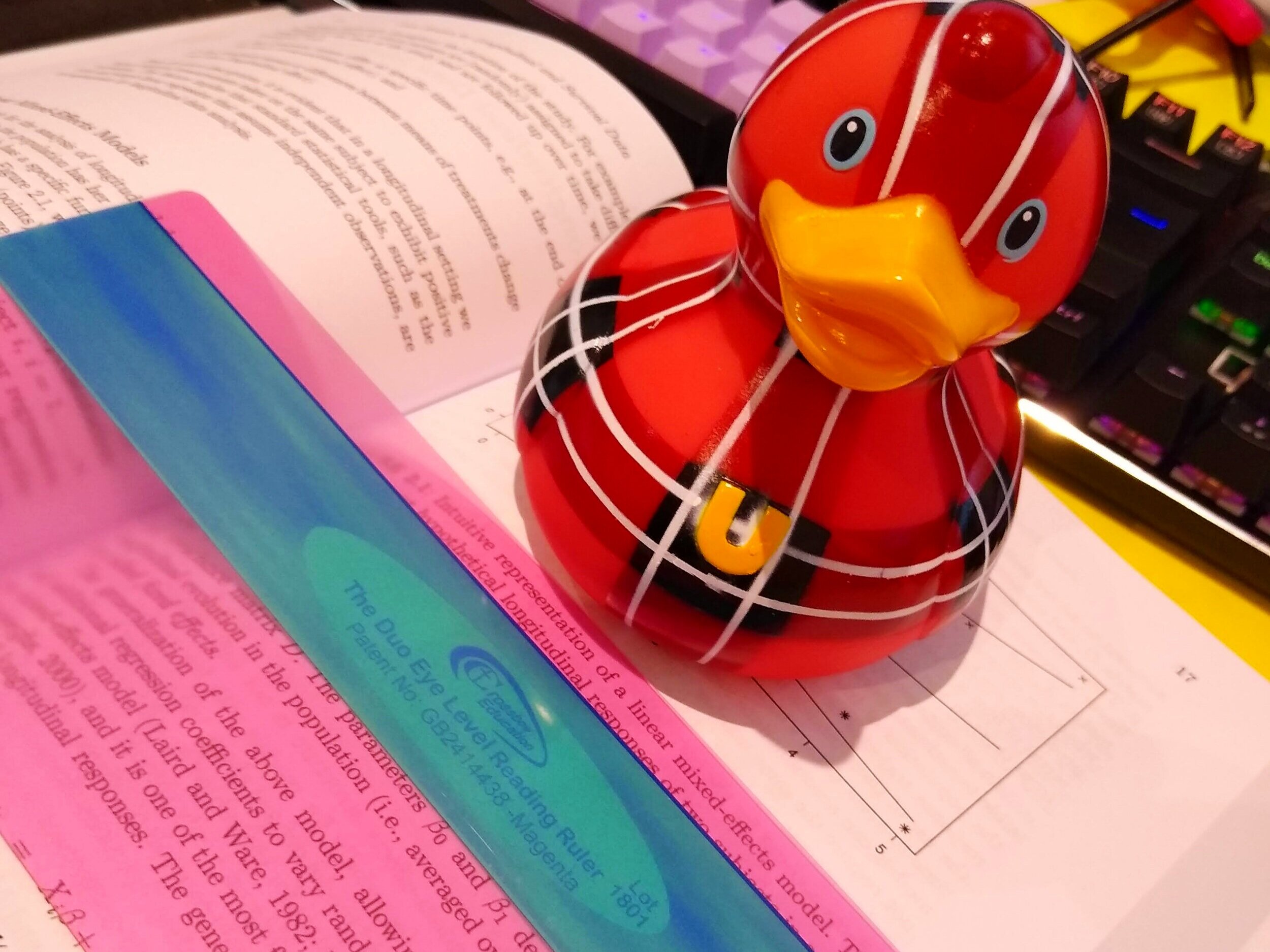Going Global: Collaborating Internationally During Your PhD
Header Image: Team Suigetsu at the Fukui Prefectural Varve Museum, Wakasa, Japan (Jan 2020)
Charlie Rex (@CharlotteRex1) is a PhD student at SUERC and this year’s PGR Office Intern. Her research examines the intensity of the East Asian Monsoon in Japan during periods of dramatic global warming. In this post, she discusses collaborating internationally during your PhD, and why this isn’t just reserved for senior academics.
With international travel currently off the cards I’ve recently found myself becoming very Glasgow-focussed. I spent most of the past fortnight within a mile’s radius from my flat, only venturing outside to go to my local supermarket, park, or favourite café.
But research-wise, it’s another story. My PhD is part of the international Suigetsu Varves Project, an international network of researchers who are centrally coordinated in a small town in Japan. My project partners are scattered everywhere from Adelaide to Cardiff, and from Potsdam to Kyoto. Before I started on the project, the opportunity to work with people from so many different countries was a distant dream- something (I thought) that only senior members of academic staff were able to do. I couldn’t have been further from the truth- international collaborations are very much a part of the PhD experience.
Some of you, like me, will have “in-built” international project partners, whilst others will be creating their own opportunities to work with researchers abroad. Either way, why should we bother to seek out and maintain these relationships? How do they enrich our PhD experience? And most importantly, are those super early zoom meetings really worth it?
Collaborative Research
Research is driven by brain-power; sharing, debating and shaping ideas are a critical part of the process. As a result, the more people you have from different backgrounds and areas of expertise, the more well-rounded your project will become. Meetings with my project colleagues are an incredible opportunity for knowledge exchange, and although my brain tends to ache afterwards, I always feel that my project is better having subjected it to the scrutiny of others. Discussions with people living around the world are particularly critical for me, because my research is in climate science, where maintaining a global perspective is increasingly important.
Working with Leaders in Your Field
UofG certainly has its fair share of world-leading researchers, but expanding your outlook creates opportunities to work with others at the cutting edge of research. Members of my team have been involved in critical papers in my field, and I feel very lucky to be able to learn from them. Intellectually, I am able to hear about new ideas and theories from the people who actually came up with them (which incidentally means less reading; a win in my book). And professionally, surrounding yourself with successful people will motivate you, even when your PhD is going through a rough patch. Chances are, even the most respected academics have had failed lab experiments before- but they are living proof that you can get through the tough times. And it’s not just the people themselves that make collaborations like this worthwhile- working with my colleagues in Japan and Australia allows me access to sediment which would be otherwise hard to come by.
Cultural Exchange
Whilst the research is a very important part of these collaborations, the cultural aspect also contributes massively to developing you as a researcher (and a person). I’ve had a unique insight into Japanese culture and the opportunity to learn a whole new language. In particular, learning about Japan from Japanese people provides authenticity- I feel like I’ve been able to see past the superficial tourist stereotypes to the actual reality of Japanese life. Equally, my PI Takeshi has developed a taste for expensive Scotch whisky, bringing a literal meaning to cultural exchange!
Travel Opportunities
And of course, a major bonus from collaborating internationally are the opportunities to travel the world. Though currently limited (thanks Covid), these trips always make up for the super early Zoom meetings. What I can’t promise is that every researcher will fly you out to visit somewhere warm and sunny, but chances are, those experiences will pop up now and again, and they are incredible. Friends of mine have been to Australia, New Zealand, China and the US to use lab facilities and visiting Japan will undoubtedly be one of the highlights of my PhD (and maybe even my whole life!).
So, how to grow your network?
If you are looking to expand your academic network beyond the UK, your supervisory team might be a good place to start- as more experienced members of staff, they will likely have collaborated with researchers abroad on other projects, and might be able to suggest people who can share their expertise. Some graduate schools also provide mobility support for PGRs wanting to undertake research placements and fieldwork outside of Glasgow, so check your grad school webpages to see what is on offer. Networking, especially at online conferences or on social media, can also result in new, exciting collaborations. Don’t be afraid to pitch ideas or ask for advice from others in these situations- most people are more than willing to help. If you are interested in learning more about networking online, check out the PGR@Home resources.
I’m incredibly grateful to my amazing international team and all the help they’ve given me so far in my PhD. We may not be meeting face to face again for a little while but being part of this wide-reaching bubble of positivity has helped me grow in confidence as a researcher. So, whilst I’m in my small corner of Glasgow, I’m glad to have these connections thousands of miles away. Especially because if I have a crisis at 2 am there’s always someone awake to help me out.
Who have you collaborated with internationally? Give your project partners a shout out on Twitter using @UofGPGRblog and #UofGPGRs!



